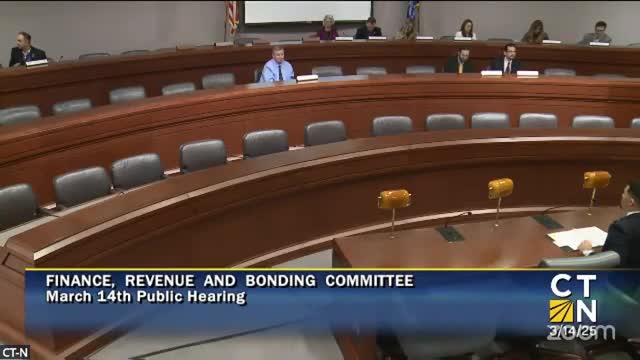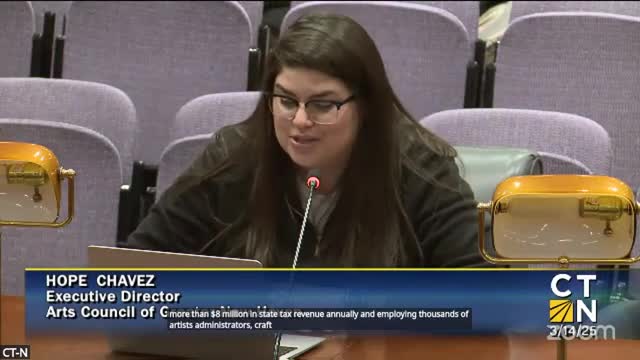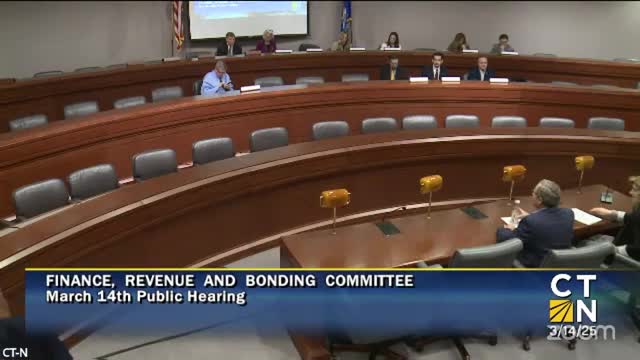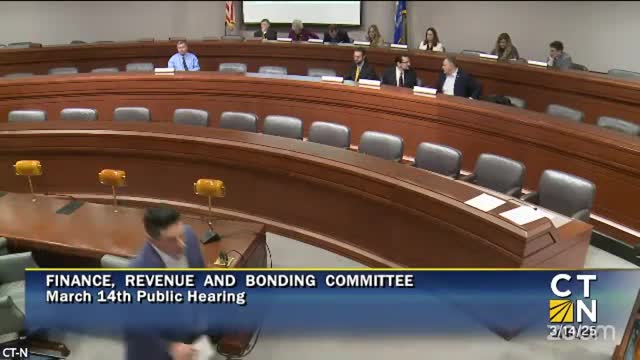Article not found
This article is no longer available. But don't worry—we've gathered other articles that discuss the same topic.

Treasurer Urges CHET Rollover, Employer CHET Credit and STO Paydown; Committee Asks for More Data

Bar Association, Probate Officials Back Restoring 9‑Month Estate Tax Deadline; Committee Hears Funding Concern from Probate Courts

Arts, Museums and Tourism Groups Urge Lawmakers to Direct Meals Tax Revenue to Cultural Fund

Farm Groups Back Investment‑Credit Bill and Higher Machinery Tax Exemption to Help Modernize Connecticut Farms

